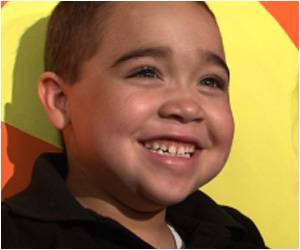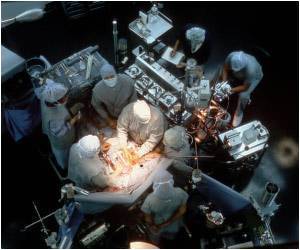A young man who had a world-first double leg transplant in Spain cried with joy on seeing his new limbs and might walk in six or seven months, the head surgeon said Tuesday.

"The patient has been awake since yesterday afternoon and is as happy as can be, he started to cry when he saw his legs," Cavadas told a news conference at La Fe hospital.
"I imagine he will be able to walk with crutches. I imagine that in the long term he will even be able to leave the crutches but that depends on how his rehabilitation goes," the doctor said.
"If everything goes as we hope we could realistically think that in six or seven months he could be walking."
The patient, a man in his 20s who had both legs amputated above the knee after a traffic accident, could begin to move his new legs in three weeks and support his own weight with them in three months, he said.
The man has not been named.
Advertisement
"Clinically he is very stable and soon he will leave the intensive care unit," Cavadas said.
Advertisement
In October 2008, he carried out the first double arm transplant in Spain and the second in the world, and in August 2009 he performed Spain's first face transplant.
For the double leg transplant, more than 50 personnel were involved including surgeons, nurses, anaesthetists and transplant coordinators, the Valencia regional government said in a statement.
The patient's progress was "favourable" although it was impossible to make a prognosis for such an unprecedented operation, it said.
Surgeons had to connect nerves, blood vessels, muscles, tendons and bone structure.
"The patient will now undergo intensive treatment to prevent rejection of the transplanted limbs," it said, and he will have to take immunosuppressant drugs for the rest of his life.
"Afterwards he will have to undergo a long process of physical rehabilitation to be able to move his legs," the statement said.
The operation went ahead after gaining clearance from the National Transplant Organisation in May 2010 and then the health ministry in November 2010. Since that approval, doctors had been searching for the right candidate.
Spain has become a world leader in organ donation since it set up a network of transplant coordinators in 1989 at all hospitals to closely monitor emergency wards and identify potential donors.
When they learn of a death, they tactfully talk to the grieving families to get permission to use the organs to help save the lives of others.
Source-AFP










